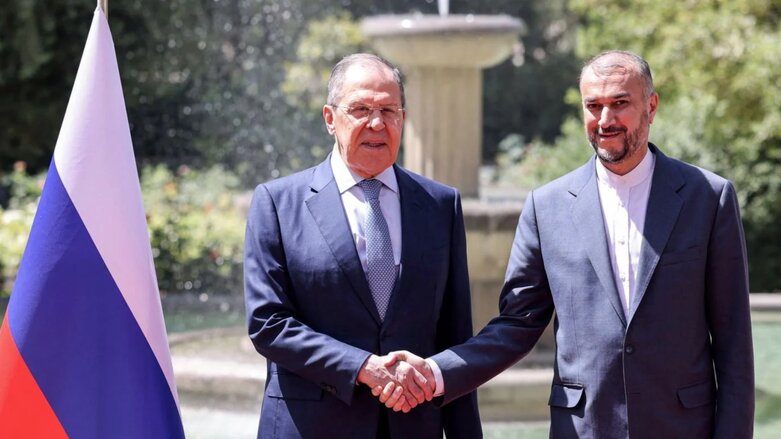Iranian President: US, NATO responsible for Ukraine crisis

WASHINGTON DC (Kurdistan 24) – Iranian President Ebrahim Raisi stated that the actions of the US and NATO, rather than Russia, were the basic reasons for the war in Ukraine, Iranian media reported on Thursday, the second day of Russian Foreign Minister Sergei Lavrov's visit to Tehran.
Raisi: US, NATO Responsible for Ukraine Crisis
"There is no doubt that the US and NATO provocations have been the factor behind these conflicts (in Ukraine), and therefore it is necessary to be active in the face of attempts to expand NATO's influence in any part of the world, including in West Asia, the Caucasus and Central Asia," Raisi told Lavrov when they met on Wednesday, according to Tasnim News Agency.
The publication of Raisi's statement marked the clearest indication yet that Tehran was siding with Moscow in its confrontation with the US and Europe over Ukraine.
Raisi's statement appeared on the same day that the European Union (EU) approved candidate status for Ukraine, as well as Moldova, another former Soviet republic that is also under threat from Moscow.
Also, on Thursday, the US announced that it was providing another $450 million in military aid for Ukraine, bringing the total amount of US security assistance to that country to over $6 billion since Feb. 24, when the Russian assault began.
The difference between the EU and US actions in support of Ukraine, on the one hand, and Raisi's statement of support for Russia highlight a major gap between Iran and the western powers.
Iran Wants JCPOA Deal—but no Sign its Dropping Obstructionism
On Thursday, Lavrov met with his Iranian counterpart, after which the two foreign ministers held a joint press conference, which included a discussion of the effort to renew the Iranian nuclear accord, formally known as the Joint Comprehensive Plan of Action (JCPOA.)
Talks in Vienna on renewing the JCPOA have been suspended since March when Iran raised a new demand: that the US take Iran's Islamic Revolutionary Guard Corps (IRGC) off its list of terrorist groups.
The Biden administration has been unwilling to do so—hence the suspension of the negotiations.
On Thursday, Iranian Foreign Minister Hossein Amir-Abdollahian said that he and Lavrov had discussed those negotiations. Iran, he said, was "serious about reaching a good, strong, and lasting agreement," as he called on the US to do the same.
"I hope we can reach the final point of the agreement in the near future with realism from the American side," Amir-Abdollahian said, while Lavrov claimed that Russia, "along with other participants in the JCPOA," was "making every effort to repair the American error, when the United States left the JCPOA."
Yet there was no indication from any official—Iranian or Russian—that Tehran was prepared to drop its demand for a delisting of the IRGC.
The US has repeatedly said it wants to return to the JCPOA—and State Department Spokesperson Ned Price did so as recently as Tuesday. Kurdistan 24 asked the State Department for comment on the statements about the JCPOA made Thursday by Amir-Abdollahian and Lavrov but received no immediate reply.
The two Foreign Ministers also stated that they were working on a new 20-year cooperation agreement—an issue that was raised when Raisi visited Moscow in mid-January, the first visit of an Iranian president to Russia in five years.
Behnam Ben Taleblu, a senior fellow at the Foundation for Defense of Democracies, advised Kurdistan 24 that Lavrov's discussions in Tehran should not be considered unusual.
"Expect more meetings and cooperation between the two in the future," he said. "Tehran and Moscow find themselves on the same side of many conflicts, and they see the world through a similar lens: namely, that their failures are not of their own making but of the West's designs."
